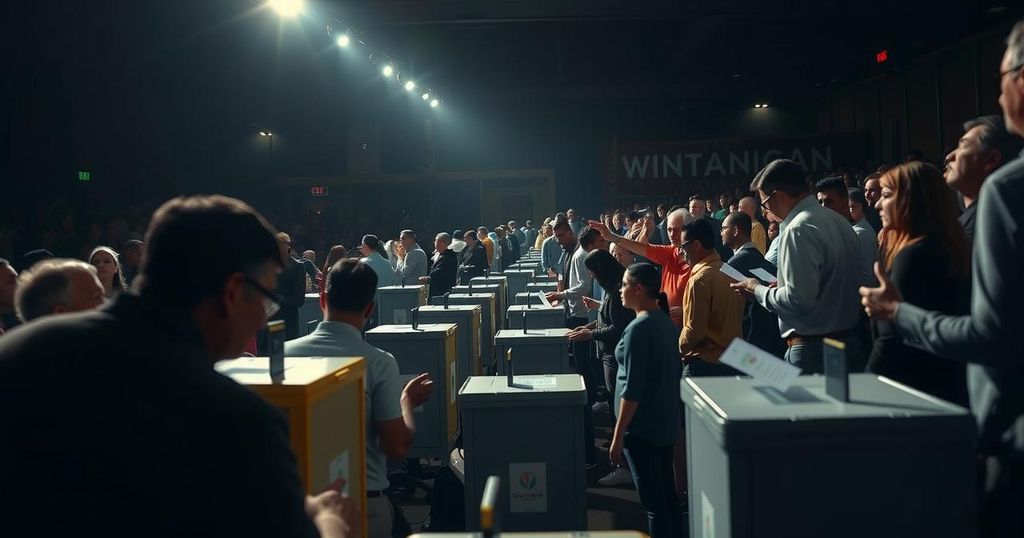Uruguay Faces Tight Presidential Runoff Election

Uruguay is set for a razor-thin presidential runoff between center-left candidate Yamandu Orsi and continuity conservative Alvaro Delgado. Polls suggest a close race with fewer than 25,000 votes possibly separating the two. Orsi represents the Broad Front, while Delgado has support from the Colorado Party, appealing to voters amidst economic challenges. The outcome will indicate whether Uruguay deviates from global trends affecting incumbent parties.
In the small South American nation of Uruguay, voters will participate in a highly competitive presidential runoff on Sunday. The election pits Yamandu Orsi from the opposition’s center-left against the continuity conservative candidate, Alvaro Delgado, supported by the Colorado Party. Final opinion polls indicate a neck-and-neck contest, with less than 25,000 votes likely separating the two. Uruguay’s political environment poses a contrast to that of its regional neighbors, as it typically exhibits a greater degree of consensus between political factions.
Polling stations will be open from 8 a.m. to 7:30 p.m. local time, with early results expected shortly after. Orsi, representing the Broad Front, garnered 43.9% of the vote in the first round, while Delgado received 26.8%. With the backing from the Colorado Party, Delgado stands to consolidate nearly 42% of voter support. Orsi has aimed to calm voters, advocating for continuity within the traditionally stable Uruguayan political context, while Delgado appeals to maintain the favorable policies of the outgoing government led by President Lacalle Pou.
The absence of any party achieving an absolute majority in the previous election adds to the complexity of governance. Orsi’s coalition emerged with a significant Senate presence, adding to his credibility as a potential leader. Both candidates are vying for the support of approximately 8% of voters who opted for smaller parties or were idle in the first round. However, recent debates and pledges may have missed the mark in swaying these voters.
As a global pattern emerges where incumbent parties lose favor, Uruguay’s economic resilience may influence voter decisions. Analysts suggest that little evidence exists supporting a demand for radical change among the electorate. The outcome of this election will provide insight into whether Uruguay can defy the worldwide trend affecting governing parties.
Uruguay, a nation of approximately 3.4 million, is characterized by its political stability, which contrasts sharply with recent political upheavals in other South American countries. Known for its progressive policies, including the legalization of marijuana, it has maintained a moderate approach in governance over the years. The current election is set against a backdrop of mixed political sentiments, where the opposition seeks to reclaim power while the ruling parties aim to uphold their governance amidst challenges posed by inflation and a global trend of dissatisfaction with incumbents. The upcoming vote is pivotal as it could redefine the political landscape in Uruguay.
The impending presidential runoff in Uruguay reflects a crucial moment for the nation’s electorate, caught between continued stability and the desire for change. With candidates from different political backgrounds presenting their visions, the outcome may not only influence domestic policies but also provide a barometer of public sentiment in a wider context where incumbents are under scrutiny globally. As polls indicate a highly competitive race, the final voter turnout and preferences will ultimately determine the direction of Uruguay’s future leadership.
Original Source: www.ndtv.com






